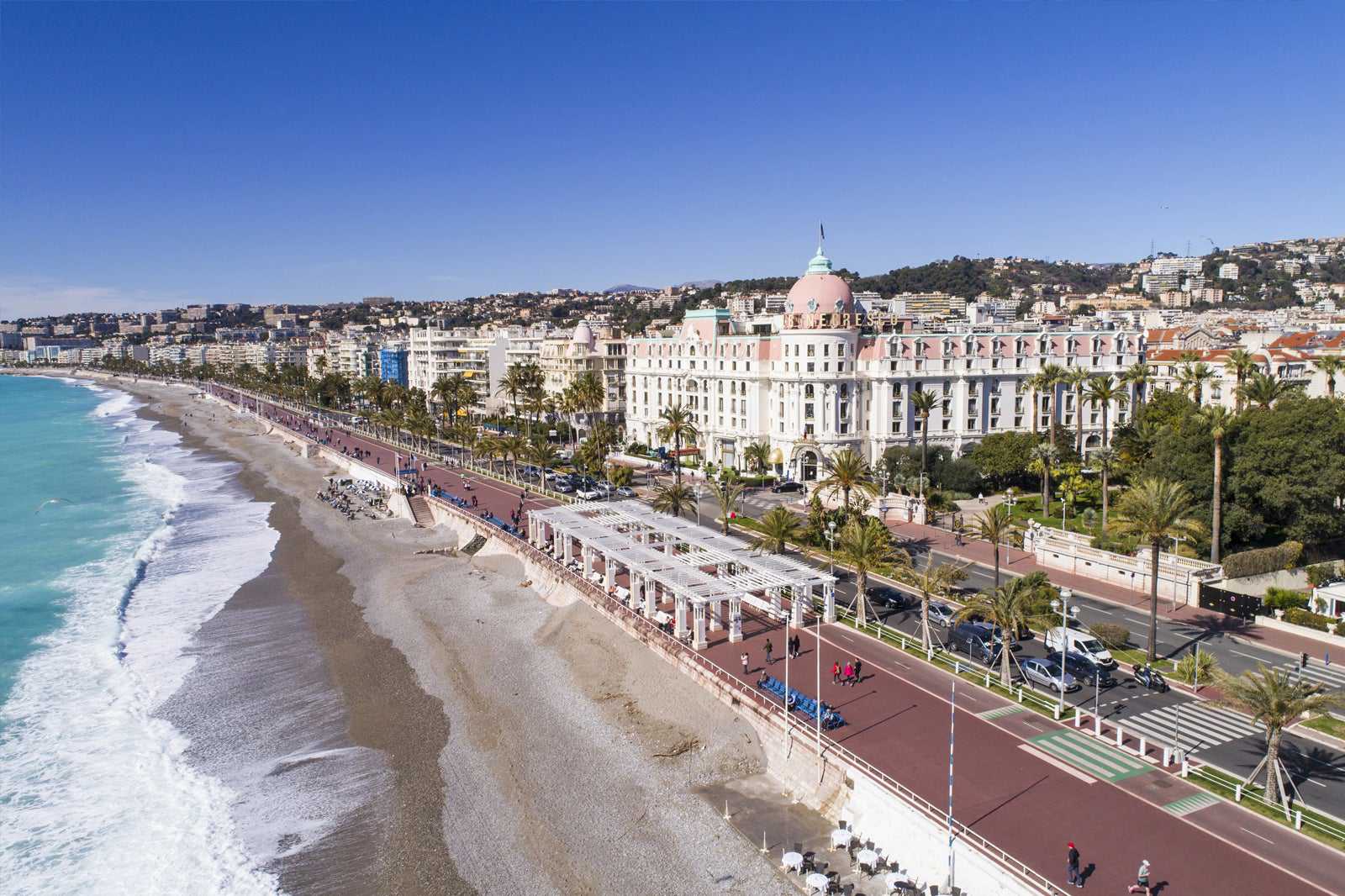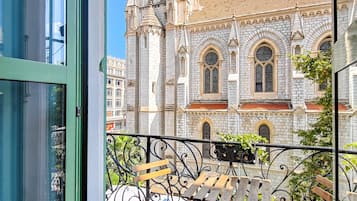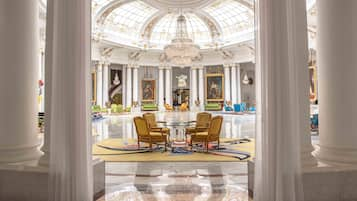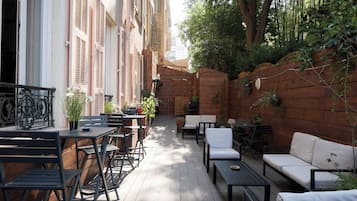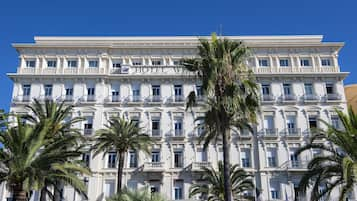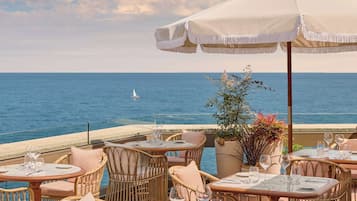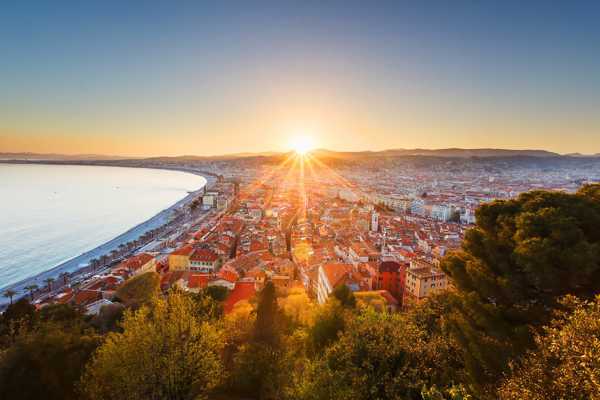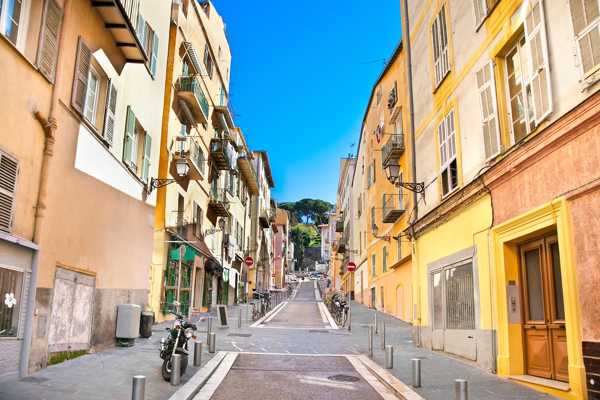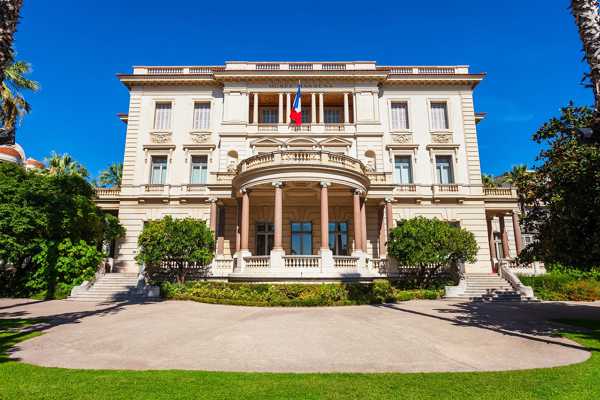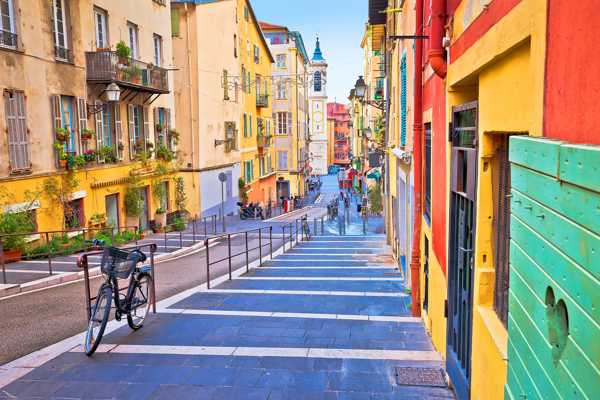The Promenade des Anglais is one of the most famous French promenades thanks to its smoothly paved stretch overlooking the Mediterranean. Azure waves gently lap a crescent-shaped bay framed with palm trees. Here, visitors sit at tables on café terraces and simply watch the world go by. Those who prefer to be more active make good use of the dedicated lanes for cyclists or go for a jog by the sea. Each February, the Nice carnival parade passes by. Its flower-covered floats make what’s known as the Bataille des Fleurs an international draw.
In all, the Promenade des Anglais measures about 7 km, connecting the city’s waterfront airport to the southwestern tip of the old town. Halfway along, you’ll find the Jardin Albert 1er, one of Nice’s oldest parks. It contains formal planting, ponds, and fountains. You’ll also find the Théâtre de Verdure, an open-air theatre built at the end of World War II. It hosts concerts too, attracting big names like Edith Piaf and Sting over the years.
Promenade des Anglais in Nice - one of the highlights of 12 Best Things to Do in Nice and 10 Most Instagrammable Places in Nice (Read all about Nice here)
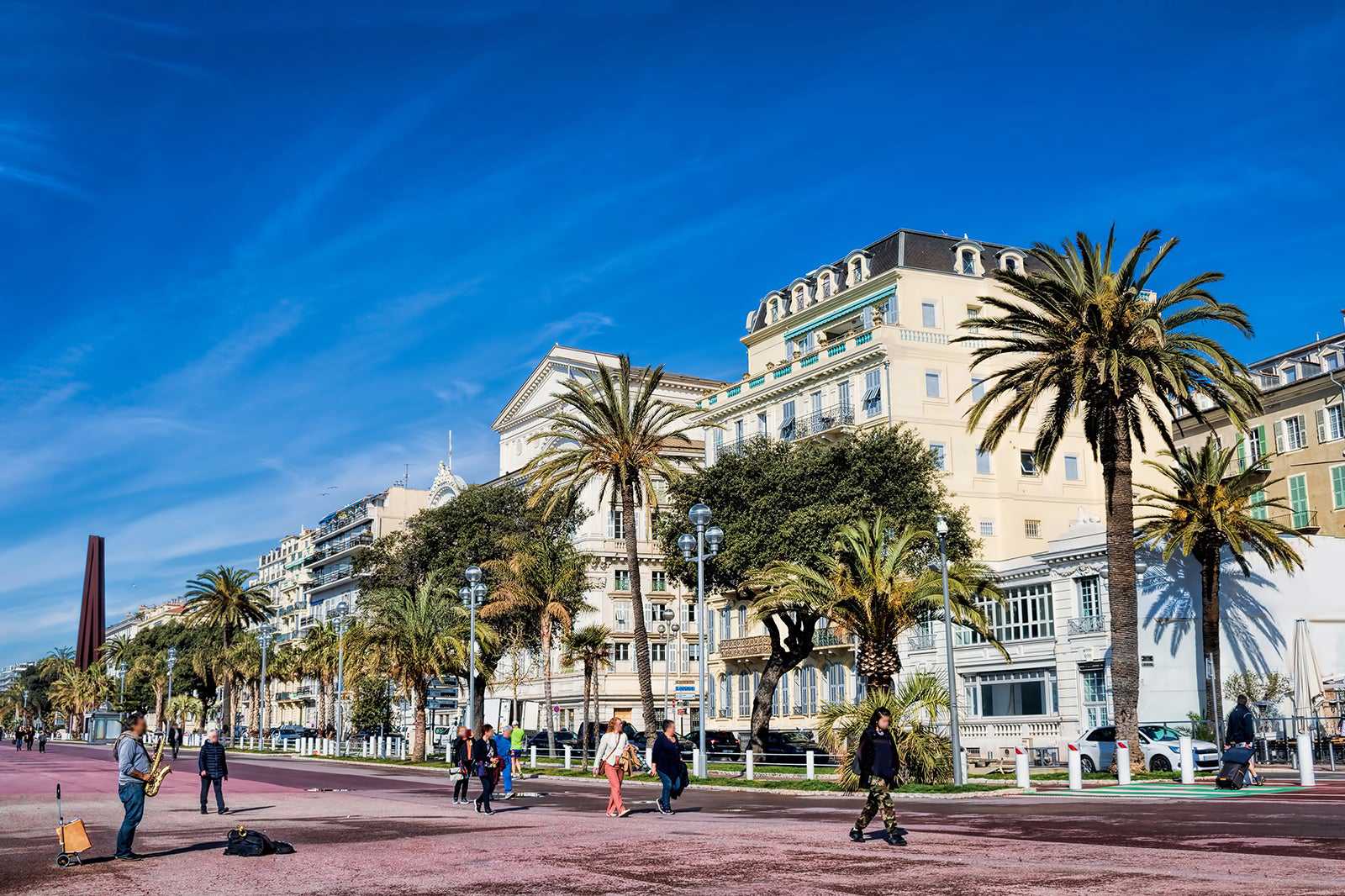
A brief history of the Promenade des Anglais
As early as the 18th century, rich Britons travelled to Nice to spend their winters. Not surprisingly, the warm climate of the South of France, coupled with fresh sea air, attracted them in droves. The Baie des Anges was their favourite resort. But one thing was missing: a safe and level walkway beside the sea.
Help came from an unlikely source – a man named Lewis Way. He originally trained as a barrister but changed careers to become a vicar. He opened a church in Nice, which was then part of the Kingdom of Piedmont-Sardinia. He intended to evangelise to the local community. Seeing an opportunity, he drummed up enough donations to finance the project to build what would become the Promenade des Anglais. An added benefit was that it would create work for the many unemployed people in the city at that time.
By the end of 1823, Way had raised 2,478 francs from 60 supporters. Work started in December of that year, creating work for almost 300 people. The Promenade des Anglais was completed in 1824, though at first it was named the Camin dei Anglès (the English Way) by the Niçois. These days, although locals refer to it as “La Prom”, its official name reminds today’s tourists of the contribution of those early visitors.
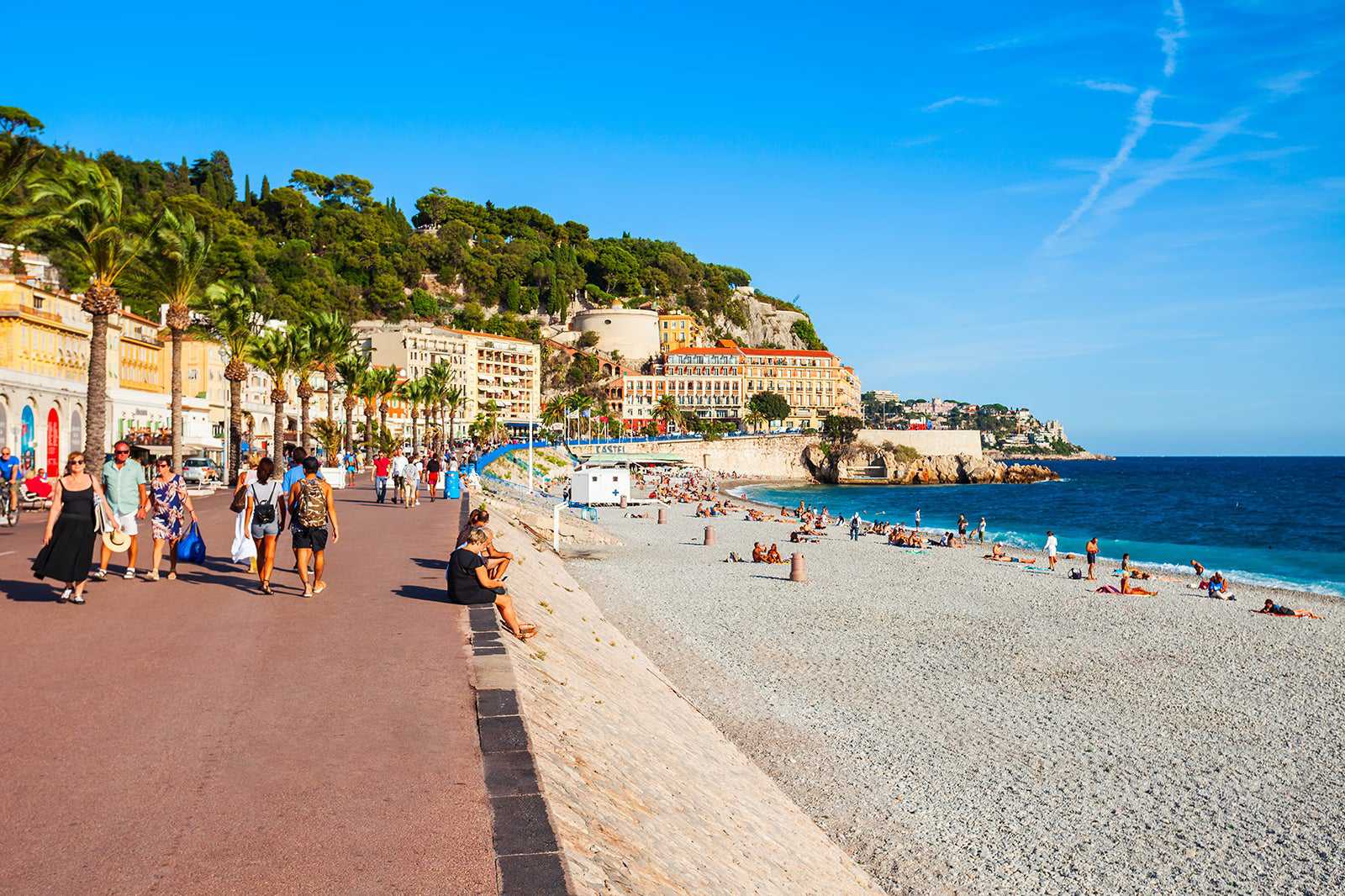
Highlights and features of the Promenade des Anglais
Many of the buildings that line the Promenade des Anglais were once the mansions of the rich. One of them is now the Musée Massena. Danish architect Hans-Georg Tersling created a handsome villa in a neoclassical Italianate style. Prince Victor of Essling lived here for a time, giving his home the family name. The mansion has been a city museum for a century and its collections mostly tell the story of Nice. Napoleon’s death mask is on display, as is Josephine’s mother of pearl tiara, but the whole place is a work of art in itself.

Another famous landmark along the Promenade des Anglais is Le Negresco. Anyone who’s anyone has stayed here, from Princess Grace of Monaco to Salvador Dali. A Romanian called Alexandru Negrescu commissioned architect Édouard-Jean Niermans to build him a lavish hotel. The result was nothing short of magnificent – a Belle-Époque triumph that now has National Monument status. The lavish interiors are breathtaking. The Baccarat chandelier that adorns the sumptuous ballroom, for instance, was intended for Tsar Nicholas II. When the Russian Revolution scuppered delivery, Negrescu snapped up the 16,800-crystal light fitting and had it installed in his hotel instead.
Older still is the Westminster Hotel, which opened its doors in 1881 and is still in the hands of the Schmitz-Grinda family. Its Great Hall contains some incredible frescoes, the work of a Florentine artist. A series of paintings depict Nice before it became part of France in 1860. A little under a mile to the east is the Palais de la Méditerranée, which dates from 1929 and was built for an American millionaire who wanted to have his own casino. Now, it’s a Hyatt Regency hotel and only the façade remains of the original building. When they rebuilt it a few decades ago, they retained the Art Deco frontage as it was a protected historical monument.

Promenade des Anglais in Nice
Lage: Nice, France
